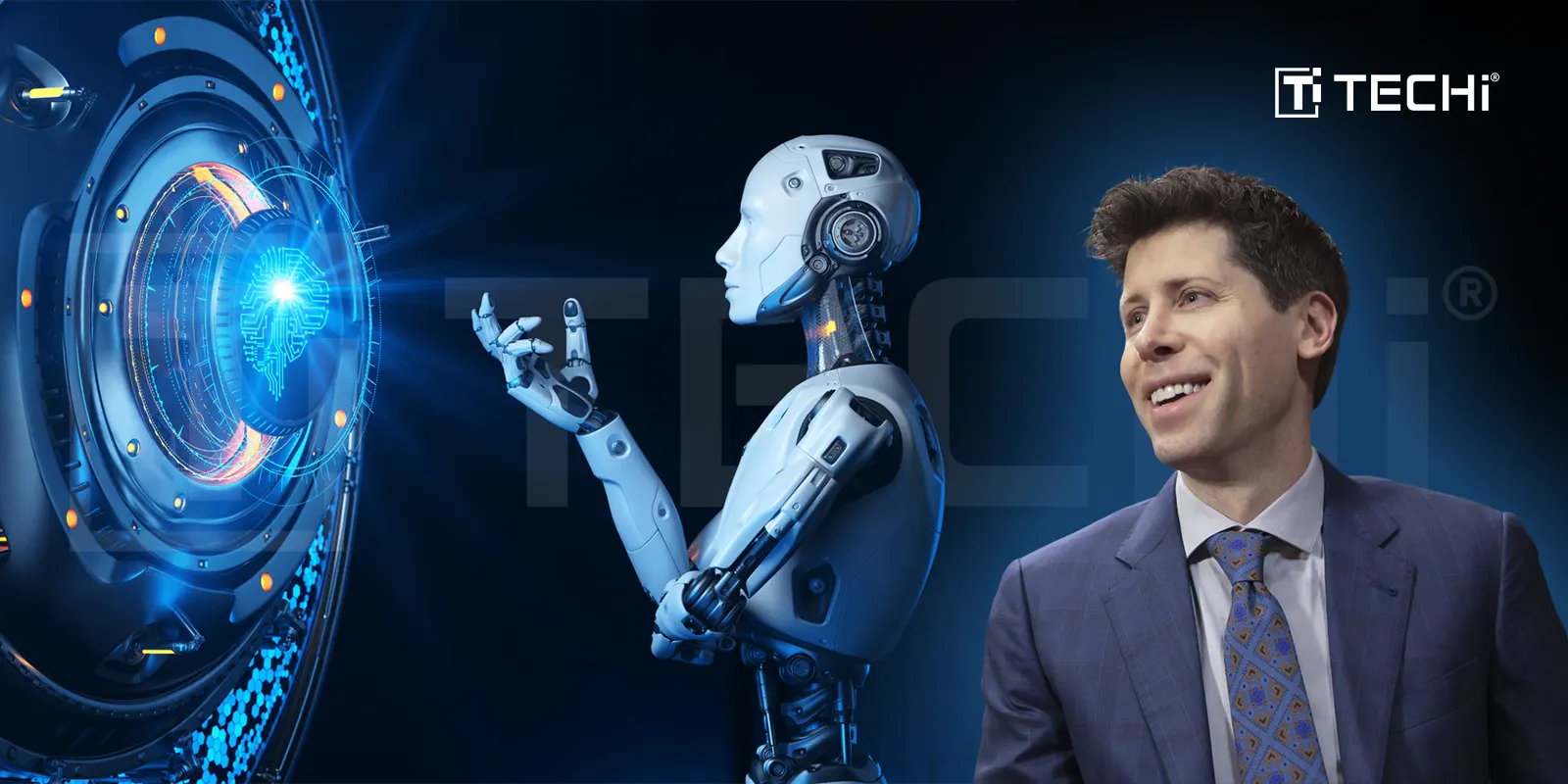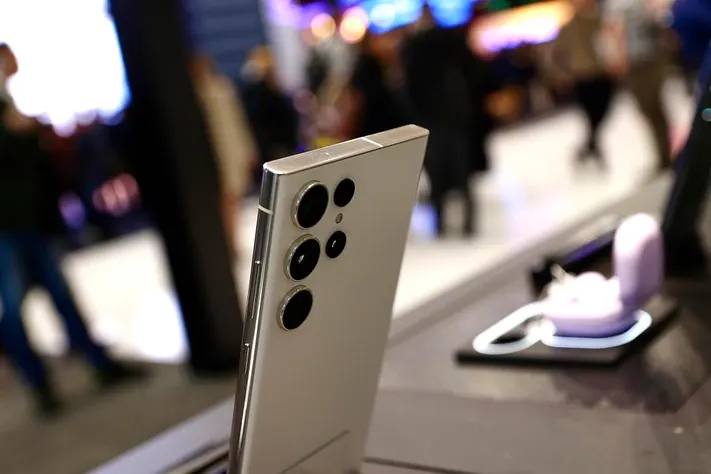The Future is Now: How AI Chips Are Revolutionizing Smartphones
Estimated reading time: 10 minutes
Key Takeaways
- AI chips for smartphones are rapidly evolving, moving beyond simple tasks to enable sophisticated on-device intelligence.
- The demand for on-device AI processing is driven by the need for enhanced privacy, lower latency, and improved energy efficiency.
- Key players like Nvidia, Arm, and Google are at the forefront of developing specialized AI hardware and software.
- Advanced manufacturing technologies, such as TSMC’s 2nm process, are crucial for producing smaller, more powerful, and efficient AI chips.
- Expect smartphones in 2025 to offer unprecedented generative AI capabilities, personalized experiences, and proactive assistance.
Table of Contents
Introduction: The Dawn of Intelligent Mobile Devices
AI is no longer a distant dream of science fiction; it’s a tangible reality that is actively reshaping our world, and nowhere is this transformation more evident than in our smartphones. These pocket-sized supercomputers are becoming increasingly intelligent, powered by dedicated hardware designed to handle complex artificial intelligence tasks. This evolution is rapidly defining the AI chips for smartphones future. In this post, we’ll dive deep into the cutting-edge innovations, the power players driving them, and the incredible benefits users can anticipate. Get ready to explore the exciting landscape of AI chip innovation 2025, a future where your smartphone is more than just a communication device – it’s an intelligent companion.

As research indicates, “AI chips for smartphones are revolutionizing mobile technology in 2025, enabling unprecedented on-device intelligence, privacy, and new user experiences by leveraging key innovation from players like Nvidia, Arm, Google, and TSMC.” These advancements are shaping a future where smartphones become true AI companions, capable of generative tasks, personal assistance, and adaptive optimization.
The Driving Force: Why On-Device AI is Crucial
The increasing sophistication of AI models has led to a surging demand for on-device AI processing. While cloud-based AI offers immense power, it comes with inherent limitations. Traditional mobile processors, optimized for general computing tasks, struggle to efficiently run complex neural networks in real-time. This is where dedicated AI accelerators and Neural Processing Units (NPUs) come into play. These specialized chips are designed from the ground up to handle machine learning inference directly on the device, freeing up the main CPU and GPU for other operations.

The benefits of this shift to on-device AI are profound:
- Enhanced Privacy: By processing sensitive data locally, on-device AI significantly reduces the risk of data breaches and privacy violations associated with sending information to the cloud.
- Lower Latency: Real-time AI applications, such as live translation or advanced camera features, require instantaneous responses. On-device processing eliminates the delay of cloud communication, leading to much faster and more fluid user experiences.
- Improved Energy Efficiency: Running complex AI tasks in the cloud can be power-intensive. Dedicated NPUs are optimized for machine learning, consuming less power than general-purpose processors, which translates directly into better battery life for your smartphone.

It’s clear that “The rising demand for on-device AI processing is driven by privacy concerns, the need for lower latency, and energy efficiency.” Consequently, “Dedicated AI accelerators and NPUs have become industry standards, specifically designed to handle complex machine learning inference directly on the device, freeing up CPU and GPU resources for other tasks.”
Key Innovators Shaping the AI Chip Landscape
The rapid advancement of AI chips for smartphones is a testament to the relentless innovation from some of the biggest names in the tech industry. These companies are not only developing the hardware but also the software ecosystems that bring these capabilities to life.
Nvidia AI Advancements
While Nvidia is perhaps best known for its dominance in the graphics card market and its foundational role in high-performance computing for AI research, its influence extends to the mobile AI space. Although Nvidia doesn’t typically design the main processors found directly inside smartphones, their broader Nvidia AI advancements in AI software frameworks, algorithms, and research often trickle down, influencing the architecture and efficiency of mobile-focused chips. Their work in developing tools and platforms for AI development fosters a rich ecosystem that ultimately benefits mobile applications and developers.
Nvidia’s influence can be seen in driving advanced AI features and fostering software/hardware ecosystems. This section discusses Nvidia’s broader influence on AI, which relates to the overall AI landscape discussed in 10 Cutting Edge AI Technologies Shaping the Future.

Arm Lumex Offline AI
Arm Holdings is the undisputed king of mobile processor architecture, licensing its designs to virtually every major smartphone manufacturer. Their strategic focus is increasingly on enabling sophisticated AI processing directly on the device, leading to initiatives like Arm Lumex offline AI. This approach emphasizes that powerful AI functionalities should not require constant cloud connectivity.
The benefits of Arm Lumex offline AI are directly aligned with the core demands for on-device processing: enhanced user privacy, reduced dependence on network availability (meaning AI works even in remote areas or with poor signal), and significantly improved battery life due to the optimized power consumption of their NPUs.
Arm’s focus on offline AI capabilities enables AI processing without reliance on cloud connections, benefiting privacy, speed, and battery life. The concept of offline AI processing aligns with the general theme of AI enhancing everyday devices, as seen in AI in Smart Home Devices – The Integration of AI in Everyday Devices.

Google AI Smartphone Integration
Google has long been a leader in AI research and development, and this expertise is deeply embedded within the Android ecosystem and its own hardware, such as Pixel smartphones. Google AI smartphone integration is evident in the practical features users experience daily. This includes real-time translation capabilities that work seamlessly, proactive assistance from AI assistants like Gemini that anticipate user needs, and the breathtaking computational photography that powers Pixel cameras, leveraging AI to enhance every shot.
Google’s commitment to dedicated AI hardware is exemplified by its custom Tensor chips, which are specifically designed to accelerate AI and machine learning tasks on smartphones. This integration ensures that Google’s AI innovations are not just theoretical but are delivered effectively to users.
Google’s deep AI smartphone integration enables real-time translation, proactive assistance, and AI-powered photography in Android smartphones. The discussion of Google AI in smartphones is directly relevant to the broader topic of how AI is changing the world, including its impact on smartphones. Google’s AI smartphone integration touches upon the use of AI in devices, which ties into Pixel 9 Google AI: Groundbreaking Google AI: Smarter, Safer Alternative to Microsoft Recall.
The Manufacturing Edge: TSMC 2nm Chip Benefits
While chip design is crucial, the ability to manufacture these advanced components at scale and with incredible precision is equally vital. Taiwan Semiconductor Manufacturing Company (TSMC) stands as the world’s leading contract chip manufacturer, and its advancements in fabrication processes are the bedrock upon which future smartphone AI capabilities will be built. The significance of the TSMC 2nm chip benefits cannot be overstated.

A 2nm process node represents a monumental leap in semiconductor manufacturing. It means that the transistors, the fundamental building blocks of computer chips, are smaller than ever before. This miniaturization leads to several critical advantages:
- Smaller Transistors: Packing more transistors into the same physical space on a chip. This allows for greater processing power and more features to be integrated into a single chip.
- Increased Power Efficiency: Smaller transistors require less energy to operate, generating less heat. This is crucial for mobile devices where battery life and thermal management are paramount.
- Enhanced Performance: With more transistors and improved efficiency, chips built on a 2nm process can perform calculations faster and handle more complex tasks, including advanced AI models.
- Compact Chip Design: The ability to make chips smaller and more power-efficient frees up valuable space within the smartphone chassis. This extra room can be used for larger batteries, more sophisticated camera modules, or other innovative components.

These TSMC 2nm chip benefits directly translate into the development of more powerful, efficient, and feature-rich AI chips for smartphones. They make the realization of advanced on-device AI more feasible and practical, pushing the boundaries of what mobile devices can achieve.
As research highlights, “TSMC 2nm technology offers greater power efficiency, enhanced performance, and compact chip design, collectively supporting more advanced and energy-efficient AI chips for smartphones.” The manufacturing advancements discussed here are foundational to the development of modern smartphones, making a link to Latest Smartphone Releases 2024: Pros and Cons relevant.
Looking Ahead: AI Chip Innovation 2025 and the Future of Smartphones
As we synthesize the innovations from key players like Nvidia, Arm, and Google, coupled with the manufacturing prowess of TSMC, the future of smartphone AI looks incredibly bright. We can anticipate significant leaps in AI chip innovation 2025 that will redefine user experiences.

Here’s what we can expect:
- Generative AI on Your Phone: The ability to generate text, images, code, and even music directly on your smartphone without relying on the cloud will become commonplace. This opens up new avenues for creativity and productivity.
- Hyper-Personalized Experiences: Smartphones will become even more attuned to individual users. AI will learn your habits, preferences, and needs, adapting the interface, suggesting content, and optimizing performance in ways that feel remarkably intuitive.
- Proactive AI Assistants: Your smartphone’s AI assistant will evolve from a reactive tool to a proactive partner. It will anticipate your needs, manage your schedule, optimize device settings for you, and suggest relevant actions before you even think to ask.
- Advanced Computational Photography and Videography: Expect camera capabilities to be supercharged by AI. Sophisticated image processing, real-time video enhancements, and entirely new photographic effects powered by dedicated AI chips will become standard.
- Unprecedented Efficiency: Specialized AI chips will lead to further improvements in battery management and overall device efficiency, ensuring that these powerful new AI features don’t come at the expense of daily usability.

These advancements solidify the AI chips for smartphones future as one where our devices transition from mere tools to intelligent, personalized companions. In 2025, AI chip innovation revolves around running generative and adaptive AI workloads directly on smartphones. New applications enabled by these advancements include advanced camera enhancements, personalized user interfaces, proactive assistance, and generative content tools on-device, alongside enhanced privacy.
This section’s focus on AI advancements and their impact on smartphones aligns perfectly with the broader discussion in Unstoppable AI-Powered Smartphones: The Revolutionary Future of Mobile Technology Unveiled. The prediction of generative AI capabilities on smartphones connects to the overall AI trends in Top AI Trends to Watch 2025: Unveiling the Transformative Future of Technology.
Frequently Asked Questions
Q: What is the main benefit of on-device AI processing in smartphones?
A: The primary benefits are enhanced privacy, as data stays on your device, and lower latency, leading to faster real-time AI performance. Improved energy efficiency is also a key advantage.
Q: How do companies like Arm contribute to smartphone AI?
A: Arm designs the core architecture for most mobile processors. Their focus on specialized AI units (NPUs) and initiatives like Arm Lumex offline AI are crucial for enabling powerful, efficient on-device AI capabilities.

Q: What is the significance of TSMC’s 2nm chip technology for AI in smartphones?
A: TSMC’s 2nm process allows for smaller, more powerful, and more energy-efficient transistors. This means more advanced AI processing units can be packed into smartphone chips, leading to better performance and longer battery life.
Q: Will smartphones in 2025 have generative AI capabilities?
A: Yes, AI chip innovation in 2025 is heavily focused on enabling generative AI tasks directly on smartphones, allowing for on-device content creation and more sophisticated AI interactions.

Q: How does Google integrate AI into its smartphones?
A: Google integrates AI deeply through its Android operating system, AI assistants (like Gemini), and custom Tensor chips. This results in features like real-time translation, advanced computational photography, and proactive assistance.
Q: Is Nvidia directly involved in making smartphone AI chips?
A: While Nvidia is a leader in AI hardware, they primarily focus on high-performance computing. However, their broader AI research and software ecosystems influence mobile AI development indirectly.




